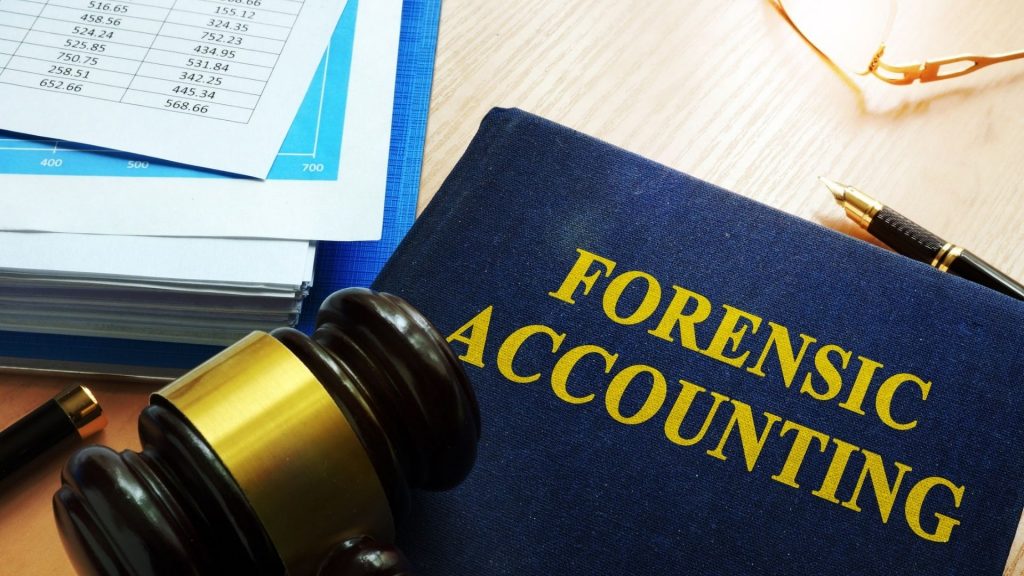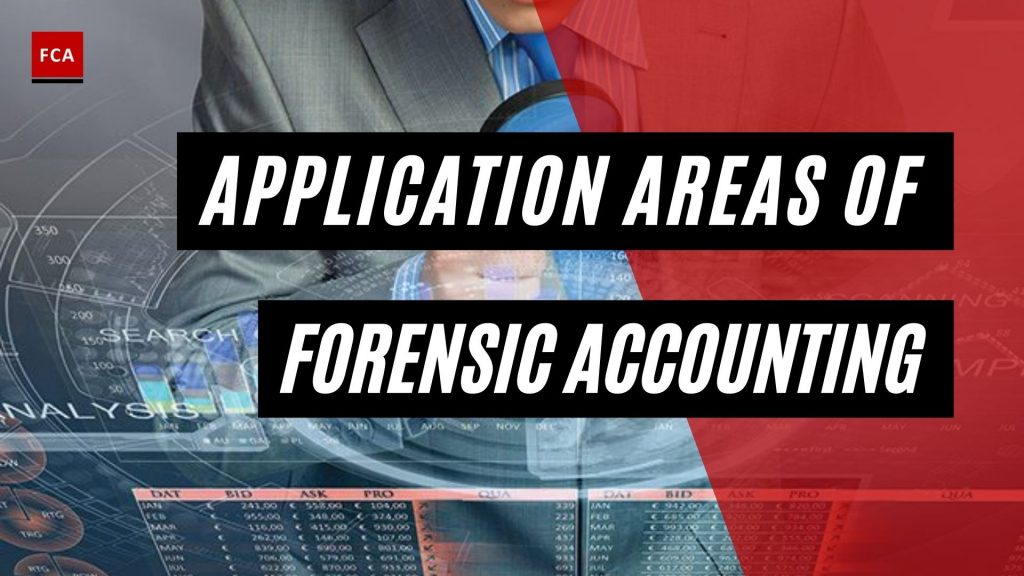Application areas of forensic accounting. The major applications of forensic accounting include fraud investigations, negligence cases, and insurance claims. An insurance claim would require determining how much the client should claim from the insurer. The first step would be a detailed review of the insurance policy to determine coverage, i.e., what is insured and any clauses that might restrict the amount that can be claimed or invalidate the claim.

Application Areas Of Forensic Accounting
The second step would be to gather evidence to quantify the loss, the amount to be claimed. Insurance claims might include claims following misappropriation of assets, such as theft of goods or money. In such cases, the forensic accountant will review inventory or cash records and details of sales and purchases to reconcile the amounts held and determine the value of the goods or cash stolen.
They will also test the reliability of the information held by counting a sample of inventory or cash currently held compared to the client’s records. The forensic accountant will not assume that there has been a theft; they will consider other possibilities, such as an error in the data held.
However, insurance claims may be much more complicated than this, such as in the case of business interruptions arising as a result of fire or flood. In these types of engagements, to evaluate the loss of profit arising as a result of the business interruption, the forensic accountant will not assume that there has been any loss of profit due to the business interruption. The forensic accountant will review prospective financial information compared to reported outturn; they will also consider other possibilities like a straightforward loss of market share to a competitor.
Forensic Engagements
Forensic engagements often require the forensic accountant to quantify a loss. One such engagement is in professional negligence claims, for example, when an accountant has breached their duty of care to a client or third party, resulting in a loss for that client. In these types of engagements, the forensic accountant would also provide an opinion on whether the duty of care owed has been violated. For example, whether the audit or other accountancy service was performed following current standards in practice, legislation, and techniques.
The need for a forensic accountant may also arise because two parties do not agree on the amount owed by one party to another. The accountant is engaged in providing an expert valuation of a business. For example, this might be the case in a matrimonial dispute, where divorcing couples whose assets include shares in a company or partnership engage a forensic accountant to value the company to reach a settlement. A similar process might apply in partnerships when one partner wishes to leave the partnership and is being bought out by the remaining partner.
Understanding Forensic Accounting
Forensic accountants conduct complex financial and business analyses, interpretations, and summaries. They could work for insurance companies, banks, police departments, government agencies, or public accounting firms. Forensic accountants gather financial evidence, create computer applications to manage the data, and present their findings in reports or presentations.
A forensic accountant may be asked to prepare visual aids to support trial evidence in addition to testifying in court. Forensic accounting in business investigations entails the use of tracing funds, asset identification, asset recovery, and due diligence reviews. Due to their high level of involvement in legal issues and familiarity with the judicial system, forensic accountants may seek additional training in alternative dispute resolution (ADR).
When the quantification of damages is required in a lawsuit, forensic accounting is used. Quantifications are used by parties involved in legal disputes to aid in the resolution of disputes through settlements or court decisions. This could happen as a result of compensation and benefit disputes, for example. If the dispute proceeds to court, the forensic accountant may be called as an expert witness.
Final Thoughts
Forensic accounting examines an individual’s or business’s finances using accounting, auditing, and investigative skills. Accounting analysis suitable for use in legal proceedings is provided by forensic accounting. Forensic accountants are trained to look beyond the numbers and deal with a situation’s business reality. In fraud and embezzlement cases, forensic accounting is frequently used in court to explain the nature of a financial crime.








